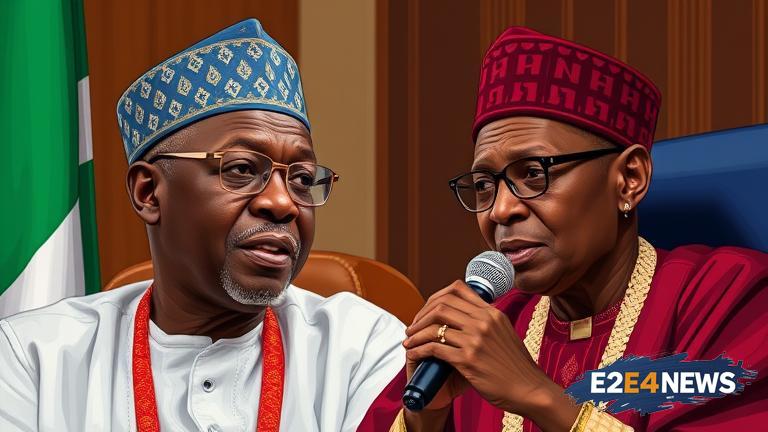A recent incident has sparked controversy in Nigeria, as a TikTok user from Kano was arrested and remanded in court for announcing the false obituary of President Bola Tinubu. The user, who has not been named, was taken into custody by the Department of State Services (DSS) for allegedly spreading false information. The DSS claimed that the user’s actions were a threat to national security and an attempt to incite violence. The court remanded the user in custody pending further investigation and trial. The incident has raised concerns about freedom of speech and the limits of online expression in Nigeria. The Nigerian government has been criticized for its handling of online dissent and the use of security agencies to silence critics. The case has also sparked debate about the role of social media in spreading false information and the need for fact-checking and verification. The DSS has been accused of overstepping its bounds and infringing on the rights of citizens. The Nigerian Constitution guarantees freedom of speech and expression, but the government has been known to use security agencies to suppress dissent. The incident has also highlighted the need for online users to be cautious and responsible in their online activities. The spread of false information can have serious consequences and can lead to violence and instability. The Nigerian government has a responsibility to protect its citizens and maintain national security, but it must also respect the rights of citizens to free speech and expression. The case is ongoing and it is unclear what the outcome will be. The incident has sparked outrage and condemnation from human rights groups and online activists. The use of security agencies to silence critics is a worrying trend in Nigeria and has serious implications for democracy and human rights. The Nigerian government must ensure that the rights of citizens are protected and that the rule of law is upheld. The incident has also highlighted the need for greater awareness and education about online safety and the responsible use of social media. The spread of false information can be prevented through fact-checking and verification, and online users must be cautious and responsible in their online activities. The Nigerian government must also ensure that security agencies are held accountable for their actions and that the rights of citizens are respected. The case is a test of the Nigerian government’s commitment to democracy and human rights, and it is unclear what the outcome will be. The incident has sparked a national conversation about the limits of online expression and the role of security agencies in suppressing dissent. The Nigerian government must ensure that the rights of citizens are protected and that the rule of law is upheld. The use of security agencies to silence critics is a worrying trend in Nigeria and has serious implications for democracy and human rights. The incident has also highlighted the need for greater transparency and accountability in government and the need for security agencies to be held accountable for their actions.
